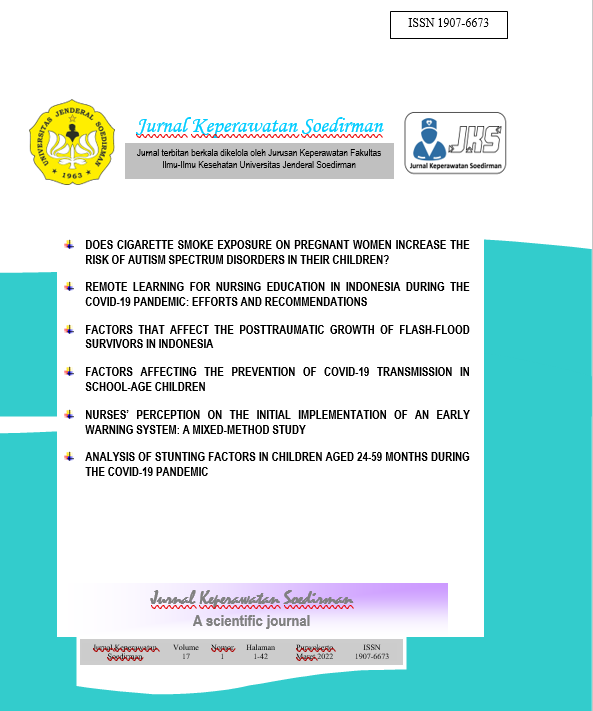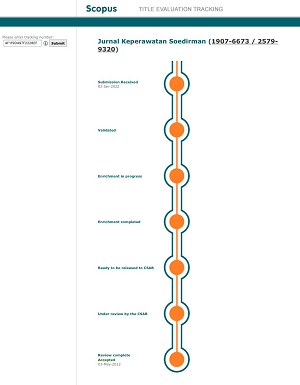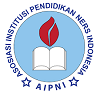Factors That Affect The Posttraumatic Growth of Flash-Flood Survivors in Indonesia
Abstract
Disasters not only bring bad impacts and cause problems to the victims, but they can also bring a positive impact, i.e., posttraumatic growth (PTG), that appears after the disaster. Investigating the posttraumatic growth of disaster survivors is important as it helps to identify the needs of survivors and develop intervention programs. Currently, there is no research in Indonesia about the PTG of flash flood disaster victims. This study aims to determine the posttraumatic growth of flash flood disaster victims in Indonesia. This was an analytical correlation analysis study which observed 95 flood victims in Magelang and employed the Posttraumatic Growth Inventory-Expanded (PTGI-X) instrument. The data were analyzed by using the Mann-Whitney, Pearson, independent t-test, and multiple linear regression tests. The average PTG of flood victims was 72.31 ± 15.91. The male disaster victims with high PTSD scores, with high school and university education levels, had a higher level of PTG. This model described that the factors investigated in this study had a 23.2% contribution to PTG.The factors that influence the PTG of flood victims were PTSD, gender, educational level, and severity of disasters.











_3.png)

 Kampus keperawatan unsoed
Kampus keperawatan unsoed  Published By Jurusan Keperawatan FIKES UNSOED
Published By Jurusan Keperawatan FIKES UNSOED jks@unsoed.ac.id
jks@unsoed.ac.id

